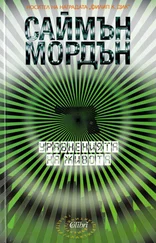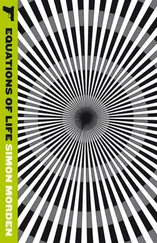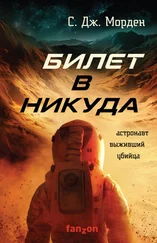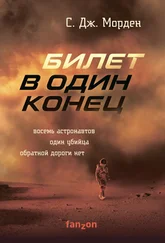“So what we have now makes everything you did okay?”
“If it’s a choice between a smoking ruin containing a million or so charred corpses ruled over by someone like Fox, and a Freezone ready to take fifteen million citizens grateful for the facts of running water and electricity? Yeah. Let me think about that for a nanosecond.”
“I’m glad you think it was worth losing me.”
His heart was incapable of skipping a beat. It never beat at all, just spun and spun and never stopped. Maybe it slowed briefly, just enough to cause him a transient but real pain.
“I would have lost you whichever choice I made. At least this way, I get to see you live.” Petrovitch levered himself up and put his shoulder to the metalwork.
It bent with a creak, leaving a gap only just large enough for him to squeeze through. Certainly not her.
“You made it that size deliberately, didn’t you?” she said.
“Can’t prove it.” He shrugged off his greatcoat and let it fall to the ground. “ Yobany stos, it’s colder than Siberia.”
He started to ease himself into the hole, one foot inside first, then feeling the sharp edges pressing into his chest and back. Slowly, he worked his way in, until he was able to wriggle free and bring his other leg after him.
The interior of Container Zero boomed with his footsteps.
“Be careful,” she said, and threaded his coat through to him.
He took it and pulled it around him, then turned to face the Last Armageddonist.
Petrovitch stepped slowly over, forcing his eyes to adjust to the low light levels, and flicking between the near infrared and visible parts of the spectrum. He moved slowly so he could composite the images together and make certain that he wasn’t blundering into a laser net or onto a pressure pad.
The air was cold, dry, like a tomb. There was no hint of decay, just a vague smell of age. He had to be the first living person in there for a very long time: he ran a quick search for the history of Regent’s Park, and found that the first domiks had been deposited on the green grass late in twenty-oh-two. Armageddon had been declared officially over with the death of van Hooren in twenty-oh-nine. Eighteen years then, minimum.
And this one had been here all that time, right in the heart of the Metrozone. Petrovitch stood in front of the Armageddonist’s heavy wooden chair and stared into his desiccated face.
“All this. All this was your fault, you govnosos. Everything.”
The Armageddonist’s skin was drawn tight over his teeth and he seemed to be grinning. Petrovitch had the urge to drive his fist through his dead staring eye-sockets, then tear off his arms all the better to beat him with the ragged ends.
Armageddon had changed the world. That was their intention, of course, but despite them bombing their way across Europe, west to east, God had not returned to judge either the quick or the dead.
The survivors had been left with a continent covered with hot-spots, millions of refugees washing across newly fortified borders, collapsed economies and radioactive rain.
It had left Petrovitch with a weak heart that had blighted a childhood which had ended abruptly when his father had canced out. He had as much reason as the next man to hate the Armageddonists.
Like every other person affected, he’d dreamed about what he’d say to one if he had the chance. Now, now he could: if he wanted, he could vent two decades of incoherent rage and frustration on the very object of his anger. No matter that it would fall on deaf ears.
He look a step back. He’d thought the Armageddonist’s hands were locked rigid on the arms of the chair, but that was only true for the right. The left was curled around a lever, like the heavy switching gear on his perpetual motion machine. He hunkered down for a closer look.
A dead man’s handle. Except the man holding it was dead, and it hadn’t worked. Yet.
Not moving his feet, he scanned the inside of the domik. He needed a heavy weight or something to jam in the mechanism. It might be that the switch was never going to fall, but one possible alternative was that the slightest vibration might set it off. The wires that joined it both to the heavy metal cylinder and to the box under the chair would mean the Armageddonist would have the last, albeit brief, laugh.
There was welding gear by the domik’s doors. Too unwieldy. The rest of the container was pretty much bare, save the table with its unstable load.
“Maddy?”
“Sam?”
“I’m going to need some wire. Stiff wire, like coat-hanger wire, or six-mil-squared copper cable.” He could tie off the switch. That would hold until he could make a better job of it. “Sometime soon, okay?”
Still without moving his feet, he crouched down and peered through the Armageddonist’s legs. By leaning over to both sides, he could see more of the object, and he mentally constructed a wire-frame model of it, to better see what it was.
A car battery.
He knew that it was simply inconceivable that one might hold its charge for two decades. There was staining on the floor around it, but that could have come from above rather than from a ruptured cell. By rights, he should just unscrew the terminals and kick the thing across the floor. It was as dead as the Armageddonist.
Petrovitch scratched at the bridge of his nose. Maybe he’d just wait for the wire. He straightened up again and peered at the bomb.
The Armageddonists mostly used old Soviet-era weapons, but this wasn’t one of them. It had the distinct look of a home-made device, of the sort that were relatively simple to make, and could be set off just by being dropped at the wrong angle. Low yield, but more than enough to lay waste to everything for kilometers around.
There was tapping from behind him.
“Yeah?”
“I’ve got your wire.”
“Throw it to me. Toward my feet, not my head. I don’t want it to go anywhere near the body.”
Madeleine occluded the outside. “How can you see… oh.”
“Just throw the wire,” said Petrovitch. “I’ve a list of stuff I need to make the bomb safe.”
“Don’t you think you should be leaving that to someone else?”
“No. No, I don’t. I’m not leaving it to someone else because that someone else is going to take a day to get here, insist on an exclusion zone of thirty k that’ll take a week to enforce across the river, cause irreparable harm to the Freezone, then do precisely what I’m going to do now and expect to be treated like a yebani hero for the rest of his life.”
The short coil of wire skittered tinnily across the floor and nudged his heels.
“Right. I want a head torch, wire cutters, a full box spanner set—including the little fiddly ones in the shape of a star, screwdrivers of all varieties, pliers big and small, a multimeter and a geiger-counter. Most of that you can find in the art college basement, and I know you know where that is. The geiger-counter: you’ll probably have to go to a medical physics department at a hospital. Got all that?” Valentina would have a lot of it, but she was at the other side of the Freezone, hunting the CIA.
“You’re enjoying this a little too much.”
He stooped to retrieve the wire and felt its gauge. It was a little thin, but it’d do.
“I seem to live in a world where you trust me with an atomic bomb, but not with your heart. I guess I have to take pleasure where I can find it.”
She hesitated at the opening. “I’ll get you your things.”
“Thanks. Do you want to tell Sonja about this, or shall I?”
“It’s my job to tell her,” she said.
“Is that a yes or a no?”
“You can do it. Somehow I think it’d be better coming from you.”
Читать дальше

![Саймон Морден - Билет в никуда [litres]](/books/388091/sajmon-morden-bilet-v-nikuda-litres-thumb.webp)
![Саймон Морден - Билет в один конец [litres]](/books/395533/sajmon-morden-bilet-v-odin-konec-litres-thumb.webp)









